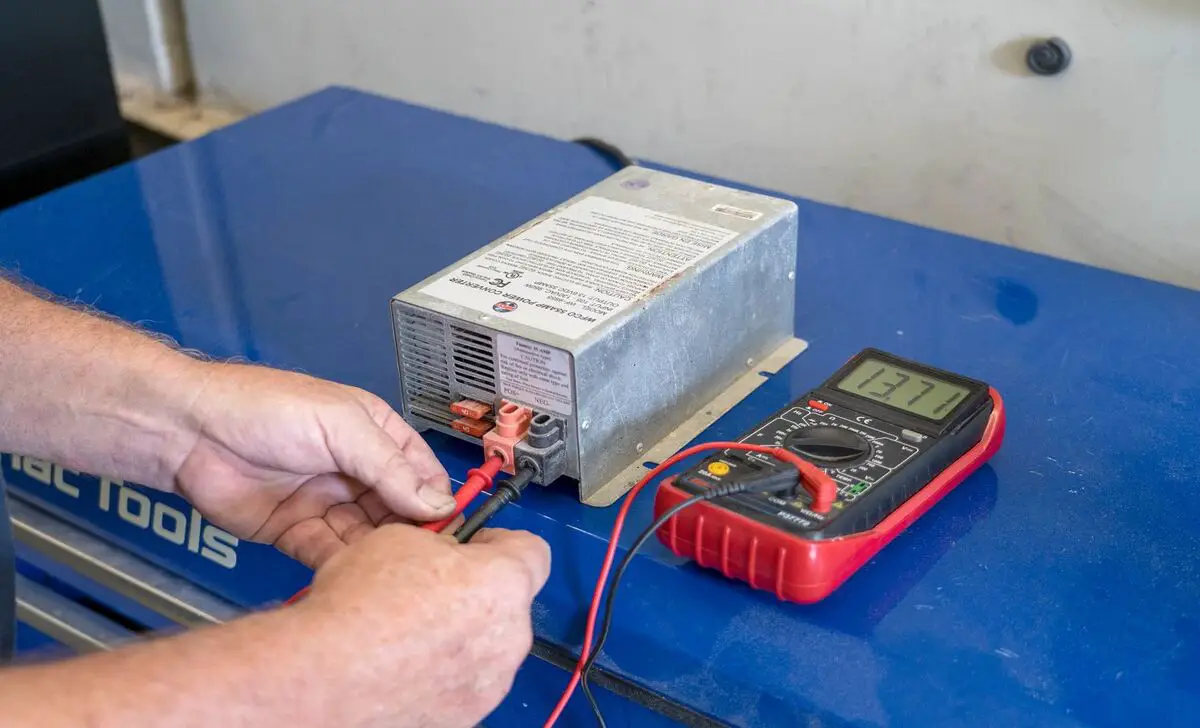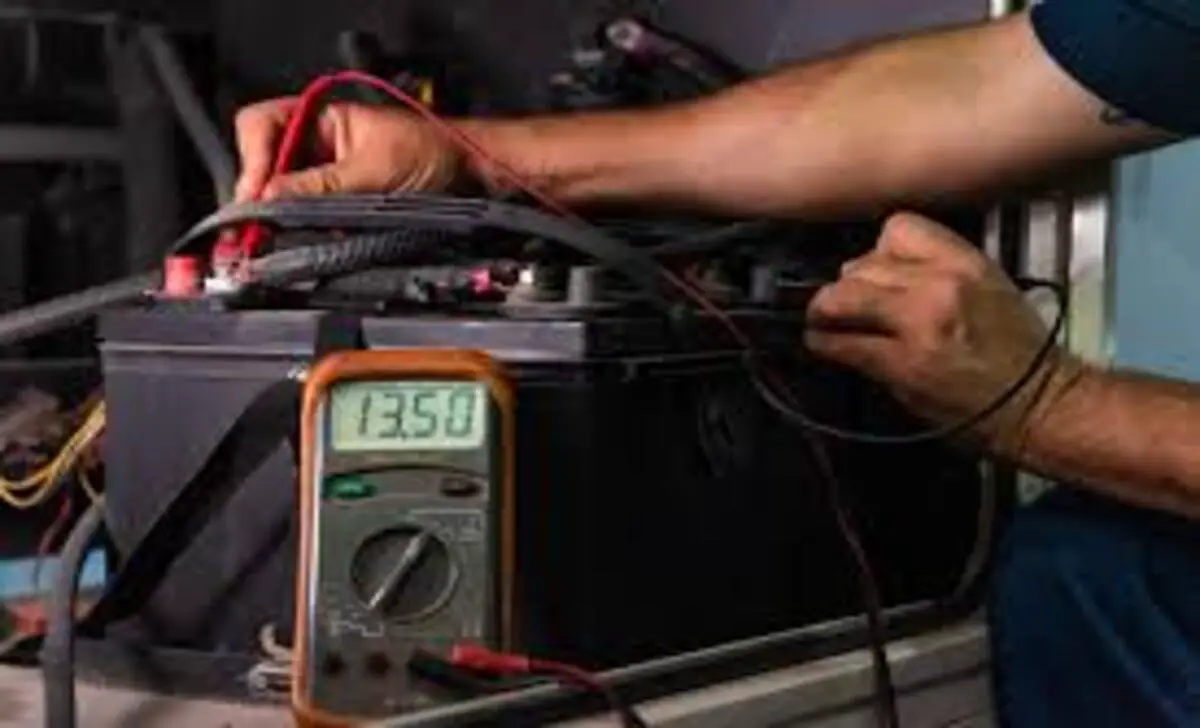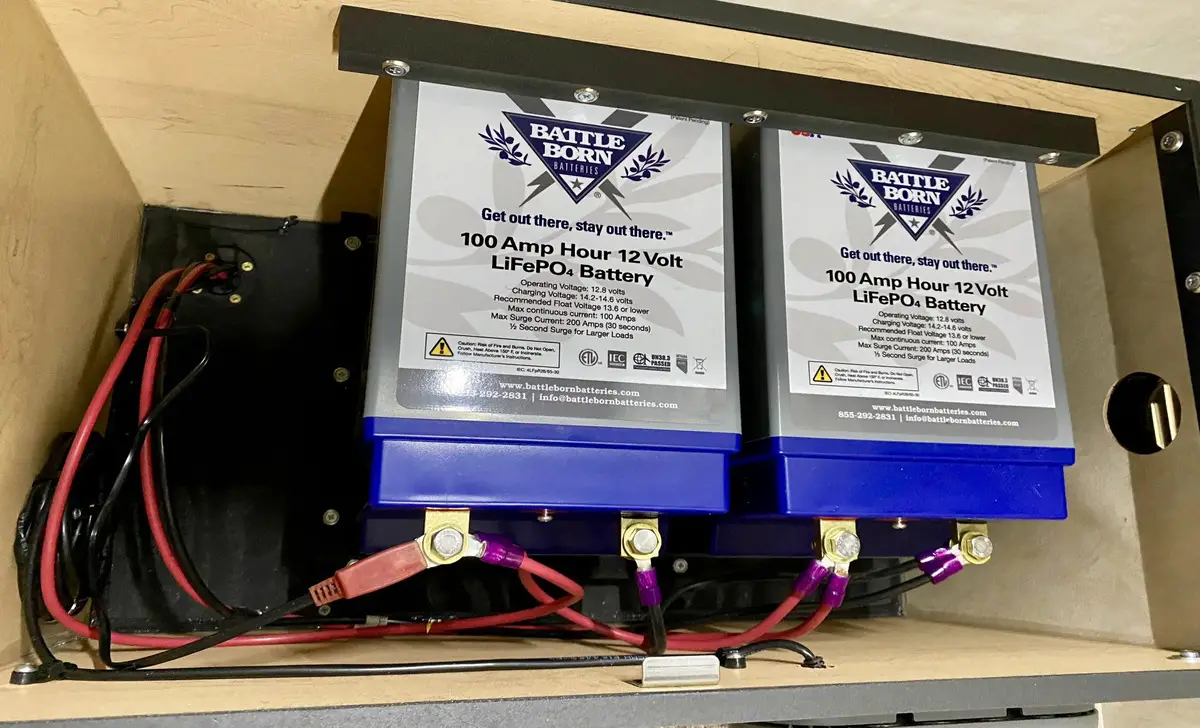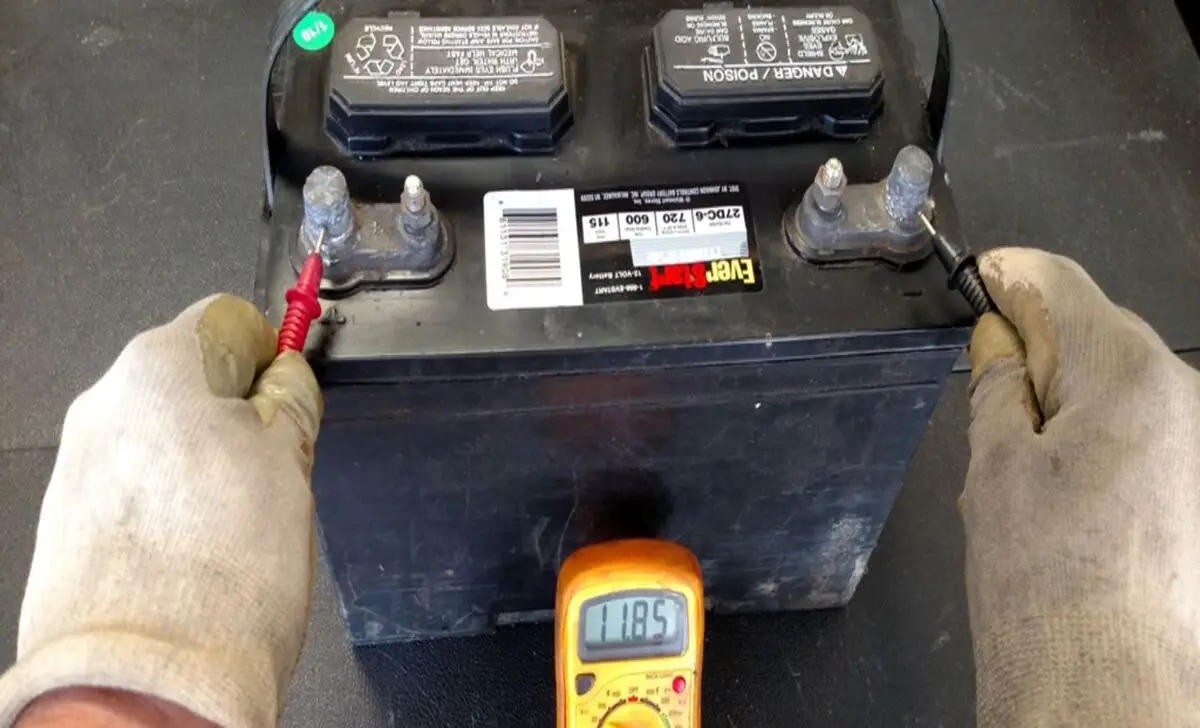An RV battery is a type of battery used in recreational vehicles. It is a battery with low internal resistance, high voltage, and high capacity. These characteristics make it suitable for use in RVs.
The power converter in your RV is responsible for supplying power to the batteries. A battery that isn’t receiving adequate voltage from the converter will not charge. In this blog, we’ll tell you how to troubleshoot an RV battery not setting problem and why your converter cannot deliver voltage.
If your RV battery isn’t charging, there are a few things you can do to troubleshoot the problem. In this blog post, we’ll discuss the basic steps you should take to try and identify the cause of the battery not charging, as well as provide some tips on how to fix the issue. So if your RV battery isn’t charging, read on to learn how to troubleshoot the problem and get it up and running again.

Reasons Why Your Rv’s Power Converter Is Not Charging The Batteries
If your RV’s batteries are not charging, there may be a problem with the RV’s power converter. The power converter is essentially the battery charger for your RV. It monitors voltage and current levels to ensure the batteries receive a safe charge.
If it fails to do its job, you won’t be able to power your RV. The most common reasons for an RV power converter not functioning correctly are a wrong power cord or a damaged wiring system. Other possible issues include damaged batteries, a faulty inverter, or a faulty connection between the batteries and the power converter. Batteries may also be defective, but this is rare.
A storm could have internal issues such as corrosion or damage from a battery explosion or a severe discharge cycle. The cables connecting the batteries and power converter may be damaged if they become ragged from use or corroded with moisture or debris. Lastly, the inverter could malfunction if it isn’t producing enough or supplying too much power to one battery compartment.
7 Method To Troubleshoot An RV Battery Not Charging Problem

The RV battery comes in different types, depending on the type of vehicle and the requirements needed for each one. The most common types are deep-cycle batteries and AGM batteries. Each class has advantages and disadvantages, so choosing the right one for your RV is essential.
If your RV battery isn’t charging, there’s a chance it’s due to a loose wire connection or faulty wiring. Ensure all cables are plugged in securely and that there is no damage to the wires or connectors before troubleshooting an RV battery not setting a problem.
1.Checking The RV Battery’s Voltage
An RV battery not charging can cause several issues in an RV circuit. The first step in troubleshooting this problem is to check the battery’s voltage. If the voltage is low, it may be a sign that there is a problem with the charging system. The next step is to check for any obstructions in the charging circuit. If all other methods fail to solve the problem, it may be necessary to replace the battery.
However, if the voltage checks out and there are no problems with the electrical circuit, there is likely a problem with the battery itself. To troubleshoot this issue, you must conduct some tests on the battery. You can test its performance by charging and discharging it multiple times and observing the results.
2.Checking The RV Battery’s Amperage

One of the most common problems with RV batteries is a low amperage. A faulty battery, poor charging system, or both can cause this. To troubleshoot an RV battery not charging problem and determine the cause, you can use a multimeter to check the battery’s voltage output and the charging system’s voltage output.
If the voltages are within their normal operating range, there may not be an issue with the battery or charging system. However, if they’re significantly lower than usual, it could mean that one or both are at fault. In this case, you’ll need to troubleshoot further and find out where the problem lies.
3.Testing The RV Battery With A Voltmeter
Testing the RV battery with a voltmeter is one way to troubleshoot an RV battery not charging problem. Another standard method is to check the voltage at the battery terminals. Whether the voltage is lower than the manufacturer’s specification, the battery may have a problem.
If the voltage is within the specification, there may be a problem with the electrical connections between the battery and the RV. If none of these methods work, it may be necessary to replace the RV battery.
4.Verify The Battery Is Installed Correctly

The first step to troubleshooting an RV battery not charging problem is to verify that the battery is installed correctly. If the battery is not installed correctly, it may not be able to provide enough juice to start the RV. Additionally, corrosion on the battery terminals can damage batteries and reduce their performance over time. Next, test the RV’s electrical system by connecting the battery and turning on the engine.
This will ensure that everything works correctly and that the battery gets the proper voltage and current needed to power the system. If you are still experiencing a storm not charging problem after troubleshooting all of these steps, there may be a more severe issue with your RV system. In this case, call a technician and have them look at your vehicle’s batteries.
5.Checking The RV Battery’s Charge Status
You must first check the battery’s charge status to troubleshoot an RV battery not charging problem. This can be done by checking the voltage and amperage of the storm. If either of these values is low, the battery may not be charging correctly.
Other common problems that may cause an RV battery not to charge include a bad connection or a faulty battery. If none of these solutions work, you may need to replace the battery. This will ensure that your batteries are fully charged and working correctly.
6.Test For A Weak Or Dead Battery

Before troubleshooting an RV battery not charging problem, testing for a weak or dead battery is essential. One way to do this is by using the generator to sta RV. If the RV doesn’t start after being plugged in, the battery may be dead or have failed. If the battery doesn’t create the RV using the generator, it may be weak or have a defective cord.In some cases, someone may need to replace a bad battery.
If you’re troubleshooting an RV battery not charging problem and are unsure whether to replace the battery or replace it with a new one, there are several factors to consider. For example, if replacing the storm could cost more than $100, it might not be worth doing.
If a new battery costs more than $100 but has a longer lifespan than the old one, it would make sense to replace it. But if neither of those is true and replacing the battery could potentially harm your electrical system, then it might not be worth doing.
7.Test The RV’s Battery Charger
If an RV battery not charging problem persists, take several troubleshooting steps. The first step would be to check the battery charger of the RV to see if it is functional. If the charger works, try using another outlet within the RV to test the battery.
We may need to do further troubleshooting if the battery is not charging. If there is any outlet, replace the RV’s battery. Suppose all of these options fn, further troubleshooting may be necessary. Sometimes a faulty power cord or connector on an RV battery charger could be causing issues with charging the battery.
In some cases, you can easily replace a defective power cord or connector and fix the setting problem immediately. However, in other cases, it may require replacing more significant electrical components within an RV to solve the charging problems.
Conclusion
An RV battery is a type of battery used in recreational vehicles (RV). It is a powerful source of energy that can be used to power essential appliances and electronics. RV batteries and converter power cords can experience voltage drops over time. But you should check your converter cables first if the batteries are not charging correctly or showing any other signs of battery problems.
If there are no problems with your lines, you can troubleshoot voltage-related battery charging problems. Also, test the converter cable with a voltmeter to ensure the voltage is flowing correctly through it. Once you’ve done that, try charging the batteries again. If it still doesn’t work, contact an RV technician.
Frequently Asked Questions
1.Why Is My RV Plugged In, But The Battery Not Charging?
Ans: One common problem that RVers encounter is that the battery is not charging. Here are a few troubleshooting tips to help you find the source of the issue:
- Check the RV’s electrical system to see if the battery has an issue.
- Make sure to plug the RV into an outlet and to check that the outlet is working.
- Correctly install and connect the RV battery to the electrical system.
- If troubleshooting steps 1-3 fail to solve the issue, it may be necessary to take your RV to a qualified technician for further inspection and repair.
2.How Do I Know If My RV Converter Is Charging My Battery?
Ans: One way to know if your RV converter is charging your battery is by checking the voltage gauge on the converter. If you connect all cables correctly, charge your battery fully, and read the voltage at the correct level. If the voltage does not charge the battery, it may be a blown fuse or another electrical issue. In that case, you will need to replace the fuse.
3.How Do I Test My RV Battery Charging System?
Ans: Testing your RV battery charging system is as simple as connecting the voltmeter to the battery terminals and the charger terminals and checking the voltage. If the voltage at either terminal is lower than the other, there may be a problem with the battery or charging system.
If the voltage at the battery is your RV, the voltage at the charge may be a problem with the wiring in your RV. In this case, you’ll need to consult a technician to troubleshoot and fix the problem.
4.Why Is My 12-Volt Battery Not Charging In My RV?
Ans: There are a few potential reasons your RV battery may not be charging. The most common cause is a bad connection. To check for a bad link, try disconnecting all the cables from the battery and reconnecting them one by one. If the battery still does not charge, you may need to replace the battery.
5.How Can I Test My RV Battery To Determine If It Is Defective?
Ans: You first need to find a battery tester to test your RV battery. Once you have the tester, connect it to your RV’s battery terminals and determine your voltage. If the battery voltage is below 12 volts, your battery may be defective and need replacement. If the battery voltage is between 12 and 14 volts, your battery may need to be recharged.
